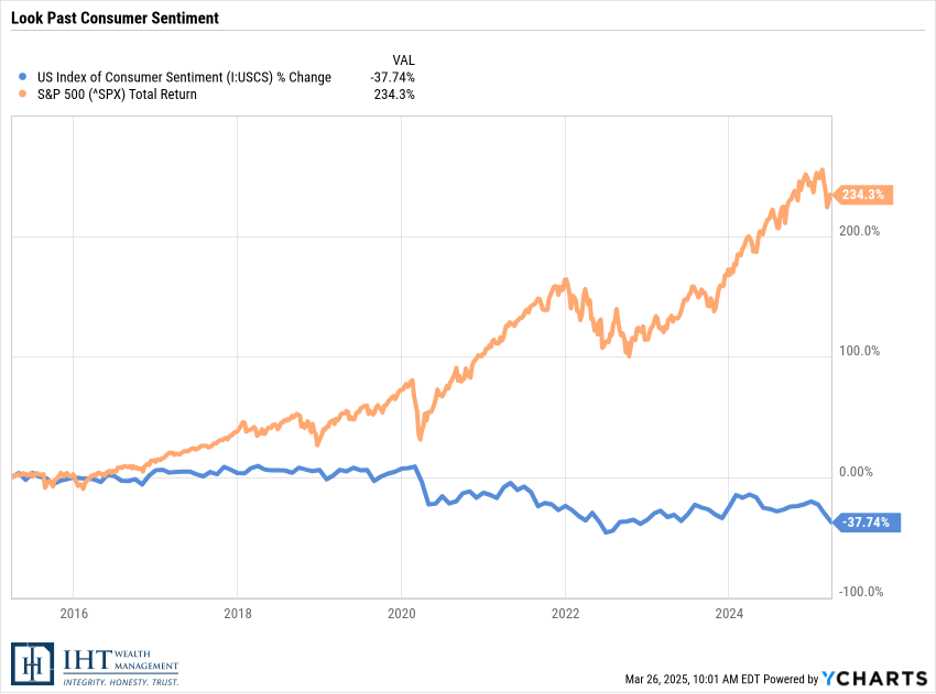
The University of Michigan’s Consumer Sentiment Index (MCSI) is set to be released this Friday, with the preliminary reading having shown about a 10% decline from February. While this index has been known to be a harbinger for consumer spending in the months ahead, investors would be better off to block out the noisy headlines around declining sentiment as of late.
The MCSI is essentially a tool to get an average feel for how Americans view their current financial situation. With over 500 households surveyed each month, the questions asked revolve around if respondents think they’re better or worse off financially compared to a year ago, what they think will happen to interest rates, and if they think prices will go up or down in the year ahead.
Because consumer spending does account for over 65% of GDP in the U.S., it’s helpful to gauge the financial health of Americans, but keep in mind the index is just a formal way of consolidating opinions and our less-than-admirable forecasting skills. Things like political affiliations, media exposure, employment status, and personal debt levels all have an influence on sentiment – and they’re all unique to every one of us.
The index is an opinion, not a fact. While steps are taken to make sure the participants are representative of the U.S. population, everybody’s financial situation is different, so investors shouldn’t try to time the market based on the opinions of only 500 survey respondents.
Feelings on Main Street aren’t always the same on Wall Street. Think about what really matters for future performance of mega cap names like META and AMZN – earnings and cash flows. People might not be too happy about their current financial situation, but that won’t mean they stop scrolling Instagram or cancel their Amazon Prime subscription.
The chart above shows how over the past 10 years the Consumer Sentiment index has actually trended downward, reflecting increased pessimism, while we’ve seen the S&P 500 continue to reach all-time highs. Bottom line – the index is helpful to get a general vibe for how Americans are feeling, but the stock market just doesn’t care.